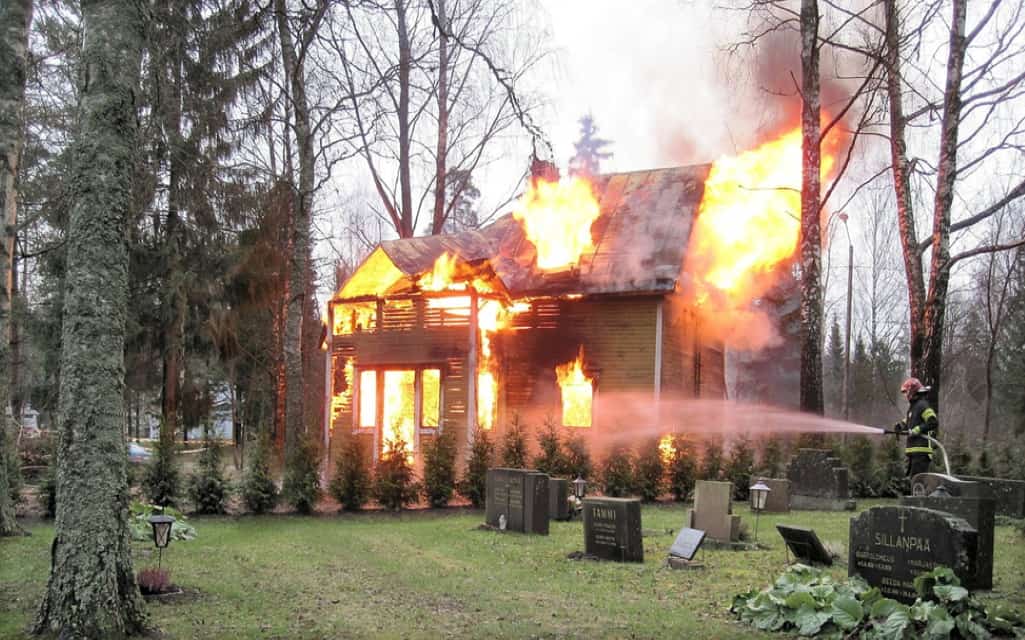House fire is one of the most common reasons for fatalities in the UK. Around 80% of fatalities occur in the home. It is not uncommon to see people suffer due to accidental fires in their homes. What to do after a house fire is the first question that arises in our mind, but as prevention is better than cure, you should focus on understanding what are the most common causes of fire.
If you are aware of the most common causes that result in a house fire, then you can take steps to ensure the safety of your family by avoiding fire at first place. Here are some of the most common causes of a house fire and what precautions to take.
1. Heating equipment
Your home is full of stuff that can easily catch fire like portable heaters. Safety norms dictate that you should always keep portable heaters at least a meter away from objects that can easily catch fire like furniture, laundry and curtains. Take extra care if you have young children at home. If you have a furnace then get it inspected every year to ensure its working condition is optimum.
2. Cooking equipment
In more than half of the house fire cases, the fire starts in the kitchen. Cooking equipment and kitchenware can easily start a fire if left unattended. Always be in the room or ask someone to watch the food being cooked especially if you are using hotplates.
3. Electrical equipment
Electric appliances can easily start a fire if they are not used properly. For instance, a faulty toaster can withdraw too much power from the power point that can rise in temperature from sudden use of extra electricity breaking a fire. Always double check power points and appliances at when using them. Loose fitting plugs should not be neglected as they can result in sparks causing a fire.
4. Smoking in bedrooms
Almost 73% of the house fire fatalities are in the cases where the fire started in the lounge or the bedroom. This is why it is best practice to keep bedrooms off-limits for smoking. A not properly put out cigarette butt can stay lit for a couple of hours. This can easily start a fire if the lit butt came in contact with any flammable material like carpet or furniture. This is the reason why most emergency accommodation providers have a strict no smoking policy for bedrooms.
5. Curious children
Kids are curious by nature but that curiosity can take a deadly turn if they experiment with fire. Always make sure to keep lighters and matches out of reach of kids. Always plan what to do after a house fire with your children and practice a home escape plan in case there is a fire. As a precaution, install smoke alarms in your kids’ rooms.
6. Candles
Candles are often used as an ornamental incense in homes, but they can easily cause a room to burst into flames if are not handled carefully. Never leave a room with a candle lit, always blow it before leaving. Also, keep candles away from flammable objects like books and tissues.
7. Barbeques
Barbeques make for some awesome outdoor meals and are fun. However, they pose a serious threat to your house which is why you should keep them away. Always keep your barbeque clean to ensure there is no flammable liquid lingering over it. Also, clean any removable parts.
8. Faulty wiring
Electrical hazards can also cause a house fire easily. There are some signs that tell you about faulty wiring such as if the fuse blows frequently, lights get dim when you use other appliances or the circuit trips often.
If these signs are there hire a licensed electrician to inspect your home.
9. Flammable liquids
If you store flammable liquids like kerosene or petrol in your garage make sure that you keep them away from the source of heat. Be very careful when pouring such liquids.
10. Lighting
Lamps make for awesome interiors but they are also a fire hazard. If the lamp shades are too close to the light globes the heat could build up causing a fire. Also, check if the down light is insulated from the ceiling timbers and wood panelling.
These tips are a good starting point to avoid any disaster from happening; however, it is always a good idea to know about alternative accommodation in case of a fire outbreak.



